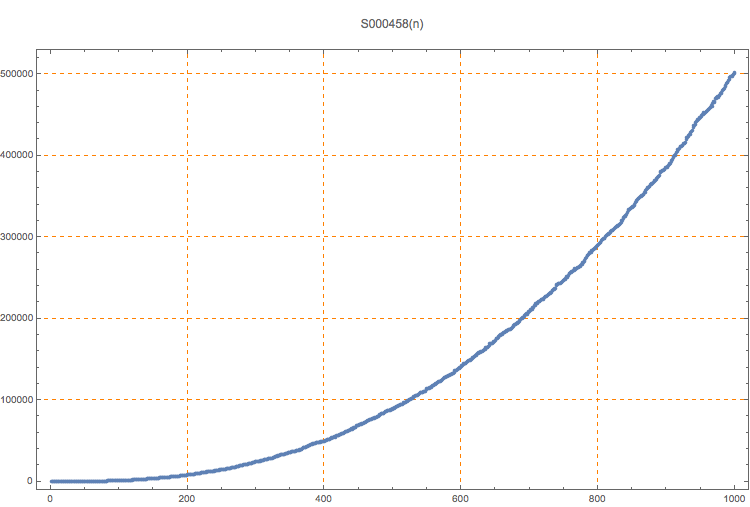Number of ways prime(n) is a sum of 3 odd nonprimes r,s,t satisfying 9 <= r <= s <= t.
0, 0, 0, 0, 0, 0, 0, 0, 0, 0, 0, 0, 0, 1, 0, 1, 2, 2, 4, 3, 5, 8, 6, 8, 12, 11, 15, 14, 19, 17, 28, 26, 30, 38, 40, 47, 49, 57, 54, 58, 70, 75, 82, 89, 88, 99, 116, 131, 128, 141, 139, 152, 159, 172, 179, 194, 207, 219, 228, 229, 241, 253, 300, 298, 313, 311
1
Complement of the ternary Goldbach problem; instead of writing a prime number as the sum of three primes, we write it as the sum of odd composite numbers. The following numbers have just one representation: 43 and 53. Primes less than 43 have zero representations.
T. D. Noe, Plot of 1000 terms
T. D. Noe, Table of 1000 terms
Harald Andres Helfgott, The ternary Goldbach problem, arXiv 1501.05438
(Mma) nn = Prime[100]; ps = Prime[Range[PrimePi[nn]]]; oddNP = Complement[Range[9, nn, 2], ps]; Table[Length[IntegerPartitions[p, {3}, oddNP]], {p, ps}]
Cf. A024681 (r, s, and t distinct), S000456, S000457, S000460.
nonn
T. D. Noe, Jan 24 2015
